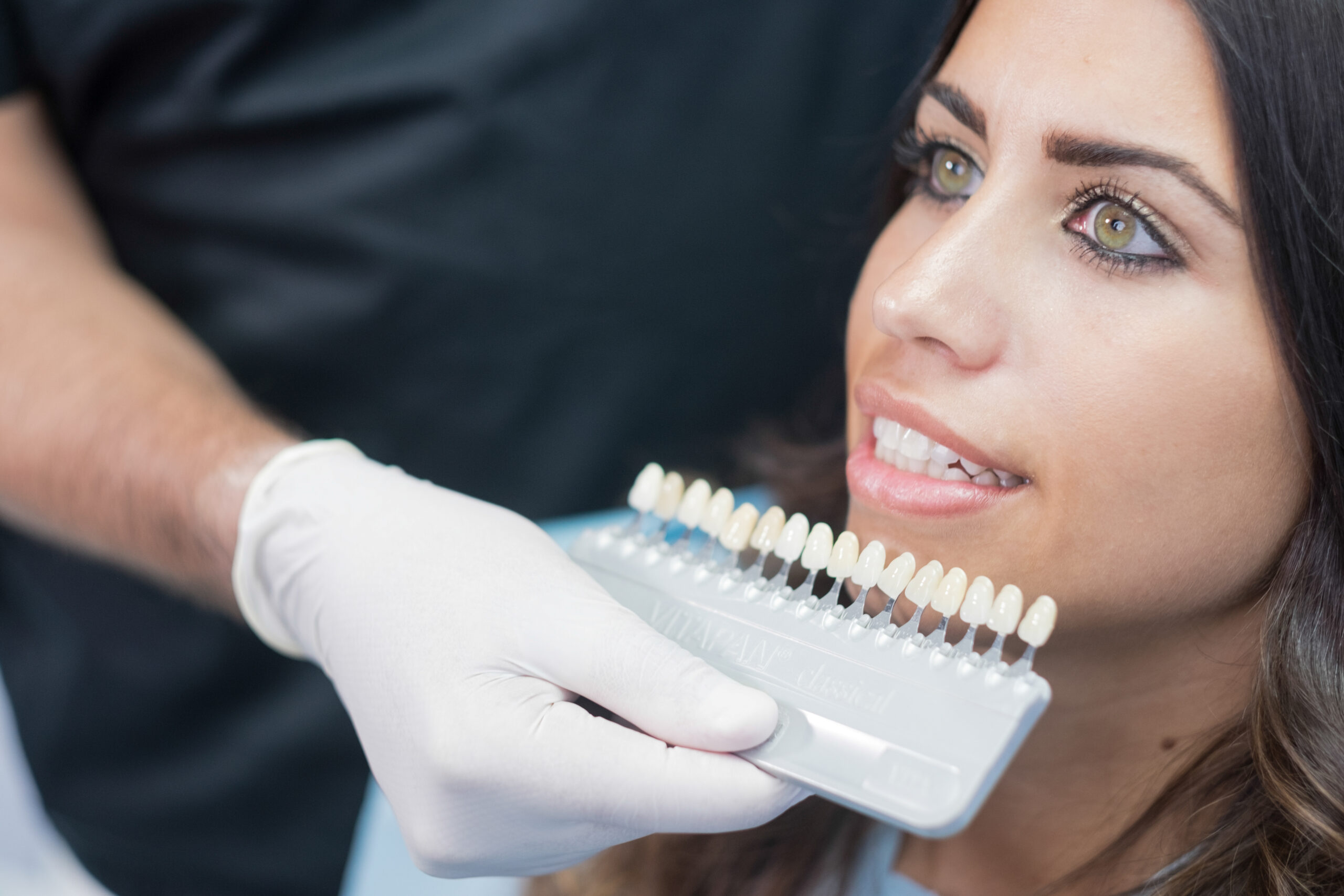Dental veneers are a fantastic way to achieve a bright, flawless smile. These thin, custom-made shells are bonded to the front of your teeth to cover imperfections like discoloration, chips, or gaps. While veneers are durable and designed to last for years, neglecting proper care can lead to a host of issues that affect not only your veneers but also your overall oral health.
At Pickett Family Dental in Keller, TX, we want you to enjoy the full benefits of your veneers for as long as possible. Here’s what can happen if you don’t take care of your veneers and how you can avoid common pitfalls.
Staining and Discoloration
While porcelain veneers are resistant to stains, the natural teeth around them are not. Neglecting oral hygiene can lead to discoloration of your natural teeth, creating a noticeable contrast with your veneers. Additionally, composite veneers are more prone to staining, especially if you consume a lot of dark-colored beverages like coffee, tea, or red wine.
Without proper care, plaque and tartar can also accumulate on the surface of veneers, dulling their shine. Regular brushing, flossing, and professional cleanings are essential to maintain the bright, uniform appearance of your smile.

Gum Recession and Exposure of Veneer Edges
Failing to maintain good oral hygiene can result in gum disease or gum recession. As gums recede, the edges of your veneers may become exposed, creating gaps that can trap food particles and bacteria. This not only affects the look of your veneers but also increases the risk of decay in the underlying teeth.
Untreated gum disease can also lead to swollen, red gums that detract from your smile’s aesthetics. Prevent this by flossing daily, brushing gently along the gumline, and attending regular dental checkups.
Damage to Veneers
Veneers are durable, but they aren’t indestructible. Without proper care, you may chip, crack, or otherwise damage them. Common causes of damage include:
- Chewing on hard objects like ice, pens, or your fingernails.
- Grinding or clenching your teeth (bruxism), which places excessive pressure on veneers.
- Neglecting to wear a mouthguard during sports or while sleeping if you grind your teeth.
Damaged veneers can’t repair themselves, so replacement may be necessary. Taking precautions to protect your veneers will save you time, money, and hassle in the long run.
Bad Breath and Plaque Buildup
Poor oral hygiene can lead to plaque and bacteria buildup around veneers, resulting in bad breath and an unpleasant taste in your mouth. These issues are particularly noticeable if food particles become trapped near the gumline or between teeth.
Brush twice a day with a non-abrasive toothpaste, floss daily, and rinse with an antibacterial mouthwash to keep your veneers and mouth fresh.
Decay in Natural Teeth
Although veneers themselves cannot decay, the natural teeth beneath them are still vulnerable. Neglecting oral hygiene increases the risk of cavities forming in the tooth structure under the veneer. This can compromise the bond between the veneer and tooth, potentially leading to loosening or detachment.
Routine dental checkups are critical to detect and treat any early signs of decay, ensuring that your veneers stay securely in place.
Shortened Lifespan of Veneers
Veneers typically last 10–15 years with proper care, but neglect can significantly shorten their lifespan. Stains, cracks, or damage to the underlying teeth may require replacement veneers sooner than expected. Maintaining good oral hygiene, avoiding harmful habits, and scheduling regular dental visits are the best ways to maximize the longevity of your veneers.
How to Take Care of Your Veneers
The good news is that maintaining veneers doesn’t require any special tools—just consistent care and attention. Follow these tips to keep your veneers in excellent condition:
- Brush Twice Daily: Use a soft-bristled toothbrush and a non-abrasive fluoride toothpaste to avoid scratching the veneer surface.
- Floss Daily: Gently clean between teeth to remove food particles and plaque.
- Limit Stain-Causing Foods: Reduce your consumption of coffee, tea, wine, and other dark-colored foods and drinks.
- Avoid Bad Habits: Don’t chew on hard objects, grind your teeth, or use your teeth to open packages.
- See Your Dentist Regularly: Professional cleanings and exams can catch and address potential issues before they worsen.
A Lasting Investment in Your Smile
Veneers are a valuable investment in your smile, offering both aesthetic and functional benefits. However, they require the same level of care and attention as your natural teeth. Neglecting your veneers can lead to discoloration, damage, gum problems, and a shortened lifespan.
At Pickett Family Dental, we’re here to help you protect your veneers and keep your smile shining bright. Whether you’re considering veneers or need advice on maintaining them, our team in Keller, TX, is ready to provide expert care. Schedule your appointment today and keep your veneers—and your natural teeth—in top shape for years to come.



